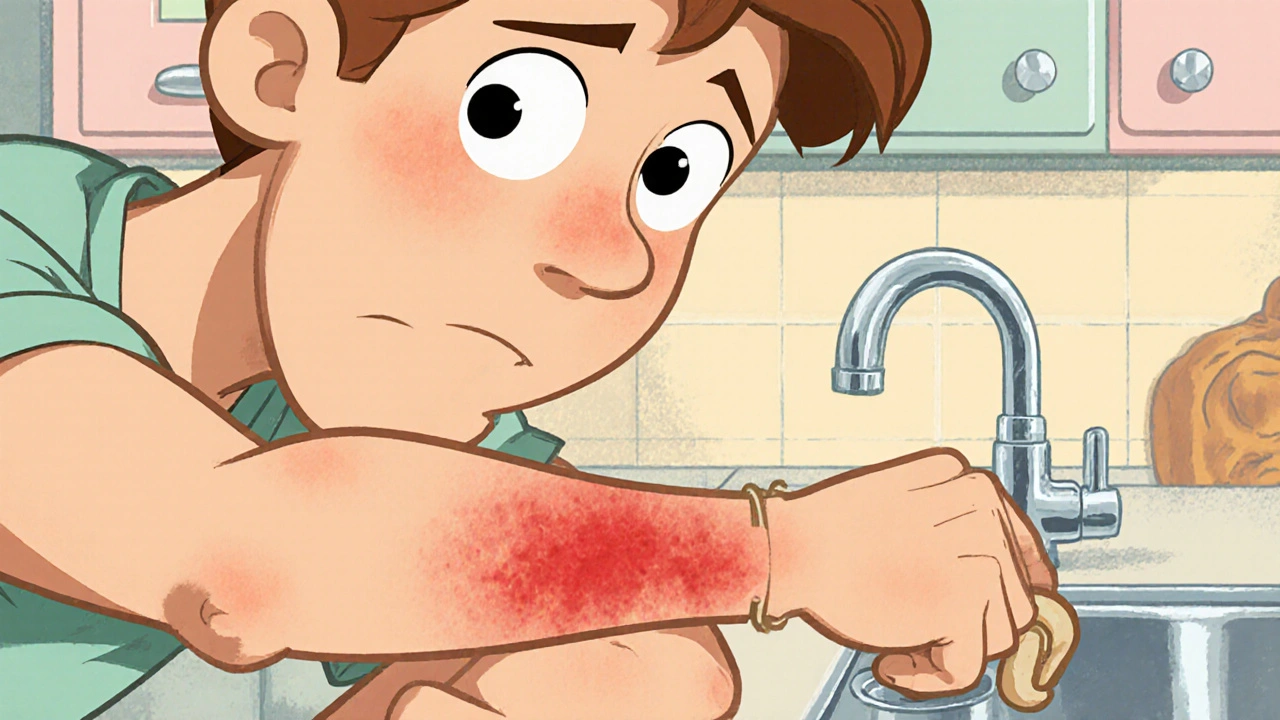Allergic Skin Rash: Causes, Triggers, and Treatments You Need to Know
When your skin reacts badly to something you touched, ate, or breathed in, you might be dealing with an allergic skin rash, a red, itchy, swollen reaction caused by your immune system overreacting to a harmless substance. Also known as contact dermatitis, it’s one of the most common skin issues people face—whether from poison ivy, new soap, or even your favorite laundry detergent. It doesn’t always look the same. Sometimes it’s a patch of dry, flaky skin. Other times, it’s raised bumps, blisters, or a burning sensation that spreads fast. The key isn’t just treating the itch—it’s figuring out what started it.
Many people don’t realize how many everyday things can trigger this reaction. Nickel, a metal found in jewelry, zippers, and even some phones is a top culprit. Fragrances, hidden in lotions, shampoos, and even "unscented" products can cause flare-ups too. Then there’s latex, used in gloves, condoms, and some medical devices, which triggers reactions in millions. These aren’t just random irritants—they’re specific allergens that your body has learned to fight, even when they’re harmless.
What helps? Antihistamines are often the first line of defense—they block the chemical your body releases during an allergic reaction, cutting down the itch and swelling. Topical creams with hydrocortisone can calm inflamed skin fast. But if you keep getting rashes, you need to track what you’re exposed to. Keep a simple log: what you touched, ate, or wore before the rash showed up. That’s how people find hidden triggers—like a new detergent, a metal button, or even hand sanitizer with alcohol and fragrance.
Some rashes look like eczema but are actually allergic reactions. Others come with swelling in the lips or eyes, which can mean something more serious. If your rash lasts more than a week, spreads quickly, or comes with trouble breathing, see a doctor. Most cases are mild, but knowing the difference saves time—and sometimes, health.
Below, you’ll find real comparisons and guides on medications and treatments that actually help with skin reactions. From antihistamines like Zyrtec to how certain creams work with your skin’s natural barrier, these posts cut through the noise and give you what works—no fluff, no guesses.
Treating Contact Dermatitis Skin Irritations: Step‑by‑Step Guide
Learn fast, practical steps to soothe and heal skin irritations caused by contact dermatitis, from home remedies to OTC meds and when to see a dermatologist.






